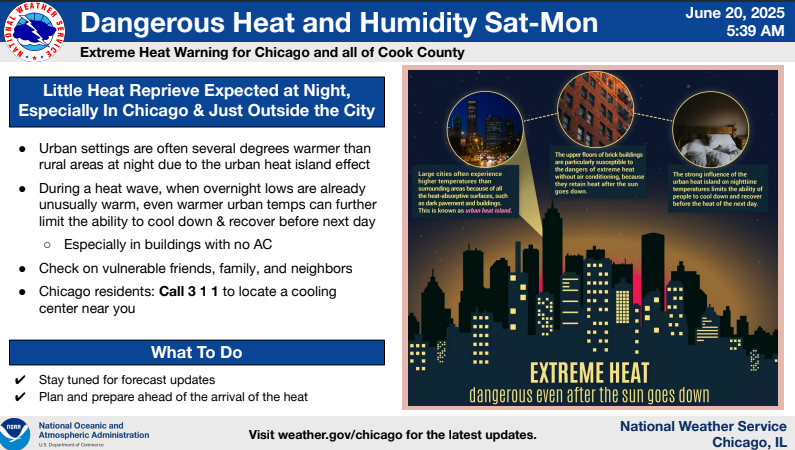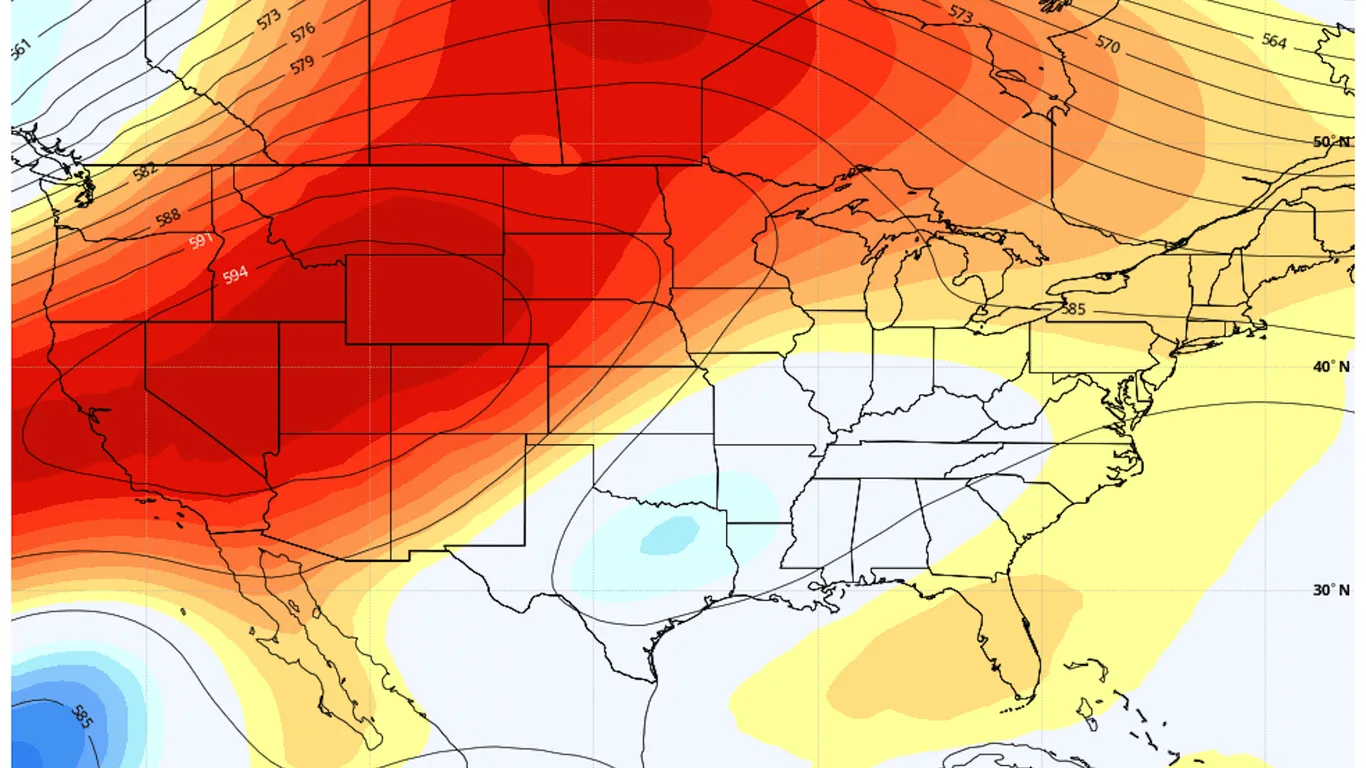Extreme Heat Warnings Amplify Vulnerability
As the National Weather Service warns of relentless heat waves across the West, communities are grappling with the harsh realities of climate change and inadequate emergency responses. Heat Advisories and Extreme Heat Warnings are in effect, revealing a growing crisis that disproportionately affects marginalized populations. According to the National Weather Service, these extreme conditions heighten fire weather concerns and threaten public health.
Homeless Populations Face Dire Consequences
In cities like Champaign, organizations are scrambling to provide emergency services for the homeless as temperatures soar. The city is struggling to offer sustainable solutions, as highlighted by local reports on emergency shelters. The current system allows guests to stay up to 30 days, provided they engage in case management services, but this is insufficient for the pressing need for long-term solutions. The very architecture of these services reflects systemic neglect, where transient measures overshadow comprehensive policy reforms. As reported by Champaign’s emergency services, the urgency for permanent housing solutions has never been more critical.

Press Release: Reminder: Cooling Centers open during extreme heat
Digital Rights at Risk Amidst Climate Crisis
As extreme weather continues to escalate, the implications for digital rights become increasingly dire. The intersection of environmental and technological policy must be prioritized, as communities turn to digital platforms for information and support during crises. However, the digital divide remains a significant hurdle. With many low-income individuals lacking access to the internet or technology, they are left vulnerable during emergencies. The disparity in access to digital resources exacerbates existing inequalities, as noted by experts in tech policy. This climate-induced crisis highlights the need for robust policies that ensure equitable access to technology, as individuals rely heavily on online resources during emergencies.
Climate Change as a Catalyst for Regulatory Action
The escalating climate crisis demands immediate regulatory action from lawmakers. As heatwaves persist, the need for a comprehensive climate policy becomes increasingly urgent. Policymakers must address the root causes of climate change while fostering resilience in communities most affected by its consequences. The Biden administration has faced growing pressure to implement progressive environmental regulations, yet the response remains tepid. The failure to act decisively not only jeopardizes public health but also undermines trust in government institutions. Grassroots movements are mobilizing to demand accountability and transformative change, emphasizing that the climate crisis is a matter of social justice. The voices of those most affected must be amplified in the policymaking process.

Heat wave hits California, temperatures likely to exceed 110°F
Fire Weather Concerns Highlight Infrastructure Weaknesses
As fire weather concerns escalate due to extreme heat, the inadequacies of our infrastructure are laid bare. Many communities lack the resources to combat wildfires effectively, revealing a significant gap in preparedness. According to the National Weather Service, the increasing frequency of wildfires poses a direct threat to public safety and environmental sustainability. This highlights the urgent need for investment in infrastructure that can withstand the impacts of climate change, as well as the necessity for policies that promote sustainable land management practices. Without these changes, the cycle of devastation will only intensify, disproportionately affecting low-income and marginalized communities that are least equipped to cope.

![[Video] Anti-ICE Protester Pepper Sprayed as CBP Agents Disperse Crowd in Minneapolis](/_next/image?url=%2Fapi%2Fimage%2Fthumbnails%2Fthumbnail-1768260677127-y71sb7-thumbnail.jpg&w=3840&q=75)

![[Video] Several injured as U-Haul truck drives through Iranian protestors in Los Angeles](/_next/image?url=%2Fapi%2Fimage%2Fthumbnails%2Fthumbnail-1768176682028-q95y6j-thumbnail.jpg&w=3840&q=75)
![[Video] Scuffle breaks out between Trump supporters and Anti-ICE protesters in Times Square](/_next/image?url=%2Fapi%2Fimage%2Fthumbnails%2Fthumbnail-1768165958203-hgcgb-thumbnail.jpg&w=3840&q=75)


![[Video] Gunfire between Iraqi security forces and Sadr militias in Baghdad](/_next/image?url=%2Fapi%2Fimage%2Fthumbnails%2Fthumbnail-1768343508874-4redb-thumbnail.jpg&w=3840&q=75)
